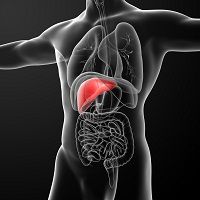Article
Hopeful Study Results for Patients with Cirrhosis and Hepatitis C
Author(s):
Patients with cirrhosis who took part in a study that tested a triple combination drug for hepatitis C with ribavirin saw normalization of key laboratory tests after three and six month treatment periods, an indication of improved liver condition.

Patients with cirrhosis who took part in a study that tested a triple combination drug for hepatitis Cwith ribavirin saw normalization of key laboratory tests after three- and six-month treatment periods, an indication of improved liver condition, according to results presented at the 2014 American College of Gastroenterology conference in Philadelphia.
Health officials estimate that some 3 million people in the US and millions more across the globe are chronically infected with hepatitis C, a virus that if left unchecked can destroy the liver. The disease is often called a silent killer because a lack of symptoms may cause it to go undetected for years or even decades.
Hepatitis C increases the risk of hepatocellular cancer among patients with cirrhosis and also puts them at risk of liver-disease related death. Those risks can be reduced by successful treatment of the virus that leads to a sustained virologic response (SVR), an indicator that the virus is no longer in the blood stream, according to Gregory Everson, MD, of the University of Colorado and Hospital, author of an oral abstract presented at the conference.
The randomized trial involved 380 patients with decompensated cirrhosis who were chronically infected with genotype 1 hepatitis C virus and had either never been treated for the virus or were previously treated with peginterferon/ribavirin. A majority of study participants were white men and an average of 56 to 57 years old.
For this study, patients received an investigational treatment regimen not yet approved by the FDA of three direct-acting antiviral drugs, ABT-450r, ombitasvir and dasabuvir, along with ribavirin for either 12 or 24 weeks. The study’s aim was to evaluate liver function by examining standard laboratory tests during and after treatment.
To participate in the study, eligible patients were required to have platelet count ≥60,000 cells/mm3, serum albumin ≥2.8 g/dL, and total bilirubin <3 mg/dL. Chemistry, hematology, and urinalysis samples were collected from patients at each study visit for laboratory testing.
Results of the study showed that 92% to 96% of patients achieved SVR at 12 weeks after treatment in the 12 and 24 weeks groups, respectively. At the end of treatment, most patients who began the study with elevated liver enzymes ended it with normalized levels, with mean liver enzymes values normalized by week 4. Other laboratory values that reflect liver function or damage such asconjugated bilirubin, albumin, and prothrombin time also normalized post treatment for a majority of patients, according to a study abstract.
The study’s improved standard blood testresults suggest that SVR with the interferon-free oral regimen improves the liver, Everson said in press briefing comments posted on the ACG web site. The hopeful news for patients with cirrhosis is that early data shows that their hepatic dysfunction may reverse after they achieve SVR with treatment.
The study was funded by AbbVie, a pharmaceutical company that is seeking FDA approval of the triple-drug combination for the treatment of patients with chronic genotype 1 hepatitis C virus infection.





